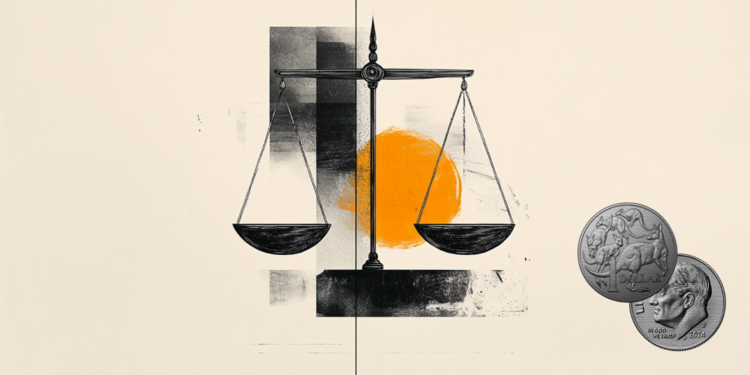The State of Maine threw the 2024 US presidential election into deeper chaos this Thursday (28), by becoming the second to remove Donald Trump from the polls due to the riot caused by his supporters, on January 6, 2021, at the Capitol.
The decision is in line with a similar ruling issued by the Colorado Supreme Court earlier this month. With the former president's name off the ballot in two of the 50 states of the federation, Trump's campaign finds itself in a crisis, as the decision increases pressure for the US Supreme Court to address the issue, treated as an insurrection.
The Trump team's uncertainty increases as important dates for the election approach, such as the Republican party's nominations, for example, which take place on January 15th.
The former president's campaign said it intends to file an appeal in Maine State Court in the coming days.
The decision was made on the same day that Trump's rising rival in New Hampshire, Nikki Haley, tried to prevent her gaffe about slavery from becoming a tool of destruction in her own image.
The idea that a presidential candidate cannot clearly state in 2023 that the enslavement of humans is what destroyed the country more than 160 years ago is, in itself, staggering.
The Maine decision deepened the unprecedented legal and political tangle surrounding the 2024 campaign – all stemming from Trump's refusal to accept defeat and his historic defiance of the legendary US transfer of power.
After all, two states decided that the former president had engaged in an insurrection against the US government – a situation unheard of at any other time in history.
The controversy, however, is whether efforts to make Trump pay for January 6th will be accepted as an argument for protecting democracy or whether they will backfire, harming Biden and the Democrats.
The multiple criminal charges Trump faces are likely to boost his popularity among base voters, even if his undemocratic and wild conduct in 2020 is a huge liability.
Republican candidate Chris Christie told “CNN This Morning”, on Friday (29), that actions like those in Colorado and Maine make the former president a “martyr”.
“Although there may be – people think there is a justification for this, it is not good in our democracy. In the end, Donald Trump should be defeated by voters at the polls and defeated by someone like me who is willing to tell the truth about him,” he said.
“Democracy is sacred”
The text that confirms the decision says that the “circumstances were so strange that the Constitution left no choice but to disqualify the Republican favorite from the vote.”
“I do not come to this conclusion lightly,” said Shenna Bellows, Maine’s secretary of state.
“Democracy is sacred… I am aware that no Secretary of State has ever deprived a presidential candidate of access to the vote. However, I am also aware that no presidential candidate has ever engaged in an insurrection.”
Trump's team lashed out in response, with the former president demanding that the country protect the very fundamental American privilege he tried to destroy for years — the right of voters to choose their president.
“We are witnessing, in real time, the attempted theft of an election and the disenfranchisement of American voters,” the Trump campaign said in a statement. “Democrats in blue states are recklessly and unconstitutionally suspending voters’ civil rights by seeking to summarily remove President Trump’s name from the ballot.”
The claim is richly ironic given that Trump still denies the result of the 2020 election, which was followed by his attempt to disenfranchise voters, including in key swing states that voted for Biden.
Trump's false claims about voter fraud have been rejected by multiple courts. But that didn't stop him from putting them at the center of his 2024 campaign, which became a vehicle to accuse Biden of the same transgression that Trump perpetrated – election interference.
Haley struggles to stabilize her campaign
The growing repercussions of Trump's behavior in 2020 unfolded on Thursday alongside another extraordinary controversy – over Haley's failure to point to slavery as the cause of the US Civil War.
Haley's misstep — and her somewhat clumsy efforts to clean it up — revived the unflattering criticisms that followed her throughout her career, including the impression that on issues such as race and the Civil War, she often equivocated on the truths of history for his own political gain.
Haley's rivals tried to capitalize on her discomfort. Florida Governor Ron DeSantis, who earlier this year found himself embroiled in a controversy over teaching about slavery in his state's schools, declared that she is “not a candidate who is ready for prime time.”
“The minute she faces any kind of clash, she tends to give in,” he said.
Christie took advantage of his problems to reinforce his refusal to abandon the race. “I’ll make it easy for you. If someone asked me what the cause of the Civil War was… It’s easy, it’s slavery,” she said, in New Hampshire on Thursday (28).
What Trump's legal quagmire and Haley's problems have in common
Haley's troubles and Trump's legal quagmire tell a story about the modern Republican Party.
Her refusal to speak openly about the obvious historical implications of slavery appeared to be an attempt to appease hard-line conservative voters in a party that has moved far to the right in recent years. She has been equally reticent to openly confront Trump about his attempt to overthrow US democracy in 2020, apparently to avoid alienating voters who believed the former president's falsehoods about the election.
While Haley's discomfort is far from over, Trump's legal shadow is also darkening, even as his team strives to protect him.
The Republican Party in Colorado has already challenged the state Supreme Court's decision to bar him.
In Maine, the Trump campaign said it will quickly file a lawsuit in State Court to stop the “atrocious” ruling from taking effect.
Bellows argued that she had the authority to disqualify Trump for his conduct.
“The oath I took to defend the Constitution comes first, above all else, and my duty under Maine election laws is to ensure that the candidates who appear in the primary election are qualified for the office they seek,” she said.
Bellows wrote that opponents presented compelling evidence that the Jan. 6 insurrection “occurred at the behest of” Trump — and that the U.S. Constitution “does not tolerate an attack on the foundations of our government.”
Before Colorado, several other states, including Michigan and Minnesota, rejected similar efforts. California's secretary of state on Thursday night released a certified list of candidates that included the former president. The fact that different states now have a divergent view of the Constitution and Trump's eligibility to run again means it is almost incumbent on the U.S. Supreme Court to intervene, even though wading into this political tsunami could further expose an institution that has been mistreated in recent years. to increase the tension even further.
Source: CNN Brasil
Bruce Belcher is a seasoned author with over 5 years of experience in world news. He writes for online news websites and provides in-depth analysis on the world stock market. Bruce is known for his insightful perspectives and commitment to keeping the public informed.







